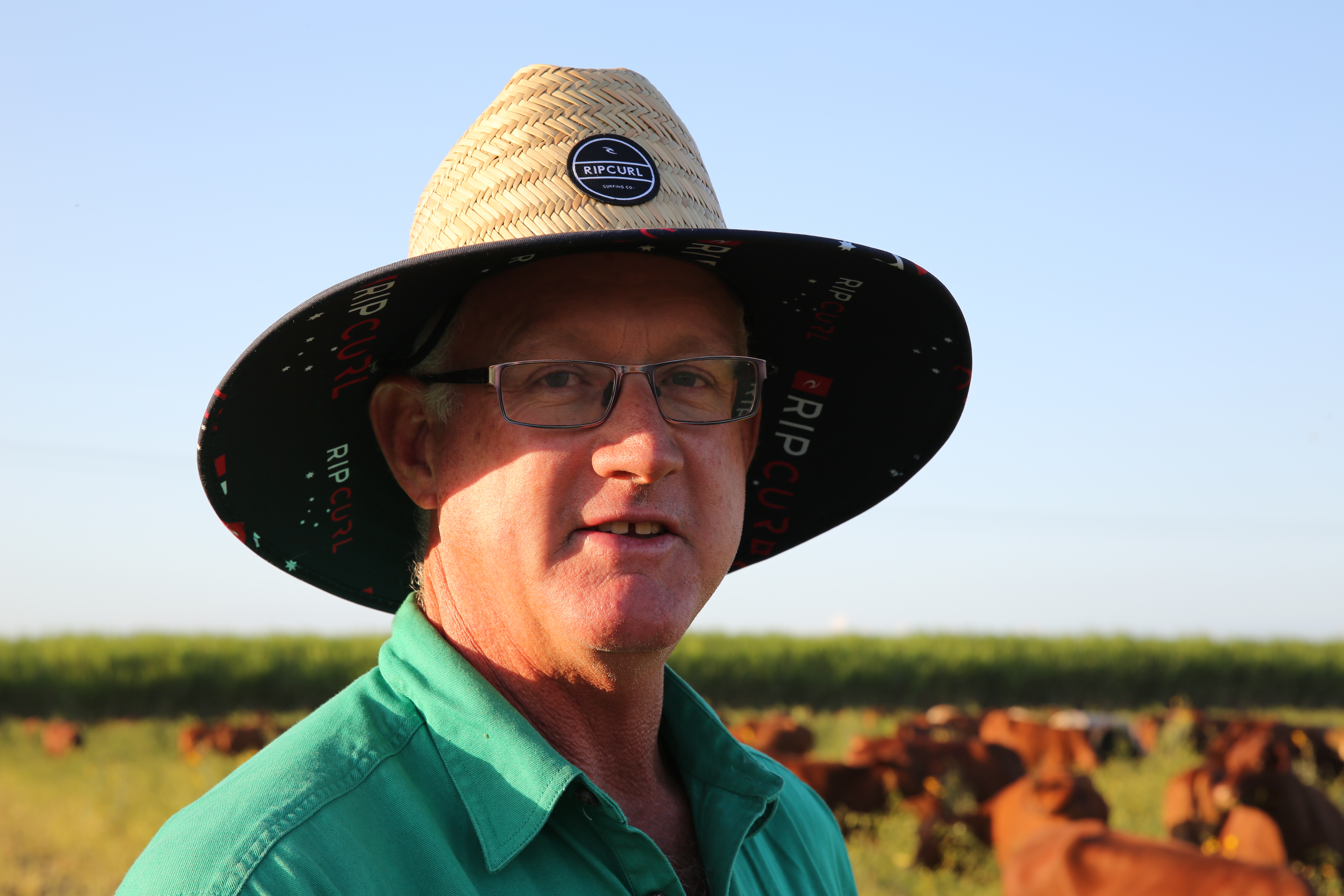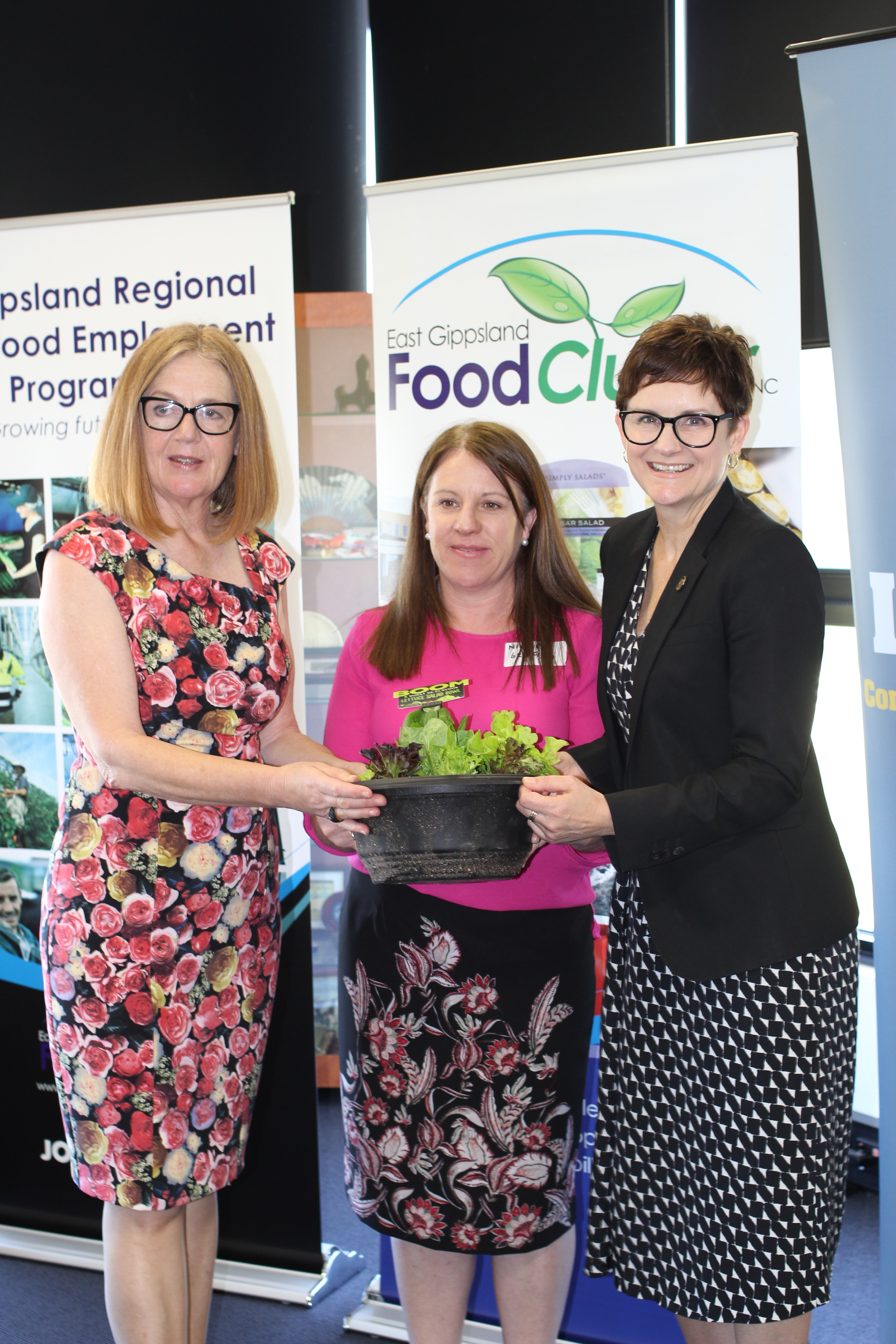
Innovation and automation: The way of the future for organic veg grower Gary Spotswood
14 May 2018
Stephanie Corrigan: Finessing the perfect vegetable product
14 May 2018A self-described “born-and-bred Gippslander”, Dr Nicola Watts is passionate about the agrifood sector in eastern Victoria. After spending 15 years working overseas, Nicola returned to Bairnsdale to work in the vegetable industry before taking the lead of the East Gippsland Food Cluster – an organisation dedicated to making a positive impact on businesses in the local area, as well as the broader Gippsland community.
Fast facts
Name: Dr Nicola Watts
Location: Bairnsdale, VIC
Works: East Gippsland Food Cluster
Role: CEO
The East Gippsland Food Cluster is a member-based, not-for-profit organisation, which works according to the principles of collaboration and innovation – taking advantage of opportunities or addressing challenges that are too big or too complex for one business or one agency to tackle on its own.
The Cluster was first developed in late 2010 and commenced operation in April 2011. In 2016, it became a service provider to Hort Innovation as part of the National Vegetable Extension Network (VegNET, VG15047), a strategic levy investment under the Hort Innovation Vegetable Fund.
Chief Executive Officer Dr Nicola Watts has overseen the East Gippsland Food Cluster since its inception, with a number of successful initiatives taking place over the past seven years. She spoke to Vegetables Australia about her role and what this initiative means to the local vegetable industry and wider Gippsland community.
Leading the charge
As CEO, Nicola’s role is to facilitate collaborative projects and make sure they are delivered in a timely manner.
“A lot of my role is going out and establishing networks and building the contacts to deliver a range of projects,” she says.
“We work to the principles of clustering, which are based around what is often referred to as a triple helix – that’s industry working in collaboration with government and also with researchers. A lot of the projects that we get involved with have a very strong research and/or education angle as well.”
At the time of the Cluster’s inception, Nicola was working for one of Australia’s largest fresh produce processors, One Harvest, as part of its management team for Vegco at Bairnsdale (this name is used for Harvest FreshCuts’ business in Victoria).
“We’d been working on a number of projects collaboratively with other businesses, particularly to address workforce challenges. Out of that came this recognition that there was probably more to be done in that collaboration space,” she explains.
“With the help of the Victorian Government and our local government authorities at that point in time, we commenced with eight foundation members and in the last seven years, this has grown to around 50 members.”
Nicola’s love for fresh produce and desire to remain working in Gippsland motivated her to join the East Gippsland Food Cluster.
“I wanted to get involved in activities that potentially made a positive difference for our community and for our region,” she says.
“I think food is so integral to what we do and who we are. Food standards from a health and well-being perspective, and food production, is so important for our regional economy. Also the whole sustainability issue – how we manage our production systems to minimise negative environmental footprints – I think is really important.”

Supporting local workers
Nicola says that during the early years of the East Gippsland Food Cluster, there was a big focus on supporting workforce development initiatives.
“We knew that we had to disrupt some of the negative perceptions that are unfortunately out there in the community, particularly in the vegetable sector,” she says.
“Young people in particular were not recognising the exciting opportunities that are available to them. We’ve done a lot of work in that space, connecting young people into the sector.”
The Cluster facilitated a collaborative traineeship program for a number of years. It provided young people who had either just left school or were undertaking school-based traineeships with formal training, as well as on-the-job experience.
“We rotated them across businesses over a 12-month period so that they could get a real sense of the diversity and the opportunities,” Nicola says.
One example of those who prospered from this program is Samantha Lizars, who featured in the March/April 2018 edition of Vegetables Australia. Samantha is currently employed as Quality Supervisor in the pack house at Bulmer Farms in Lindenow, and is about to study a diploma in quality management.
Nowadays, the Cluster is running a program entitled the “Gippsland Regional Agrifood Employment Program” which aims to connect jobs seekers (particularly people who face barriers to employment) with opportunities in the agrifood sector.
Embracing R&D
Joining the VegNET program has allowed the East Gippsland Food Cluster to unearth opportunities in the vegetable R&D space.
It has teamed up with CSIRO to explore what other products potentially could be grown in the region to support the nutraceutical and functional food markets, in addition to the fresh produce market. This could lead to the establishment of a vegetable processing hub in Gippsland.
The Cluster is also working with other organisations such as Agribusiness Gippsland to look at how it can establish one strong regional leadership group in the agrifood space, and develop more collaboration across value chains to support innovation.
These activities reinforce its long-term vision of supporting sustainable growth across six local government areas located in the Gippsland region.
“We’re trying to identify our core skills in horticulture and then identify what’s next – how can we start to develop a competitive edge in the region? Not just for the domestic market but with a particular focus on opportunities in export – taking that collaboration to another level,” Nicola says.
“Our real mandate is to grow our agrifood sector in the region; that’s really what our whole purpose is. We work a lot in that space of understanding where there are new market access opportunities in value-adding – we see that as a broader benefit to the region, and building brands.”
"Continuously learn, and learn from mistakes. Don’t make the same mistake twice, but don’t be afraid to make mistakes and learn from them."
Achieving goals
Being the CEO of the East Gippsland Food Cluster can be rewarding, as Nicola explains.
“Sometimes it’s just the little things. We deliver a lot of projects and it’s great when we can deliver the project on-time and on-budget, but the things that I get the biggest kick out of is seeing people like Samantha Lizars shining on a really positive pathway.”
Nicola believes the agrifood sector is an “exciting space” to be working in, and her message to women looking to join the agriculture and horticulture industries is to have strong networks.
“There’s a lot of focus at the moment around supporting women in ag, because often it can be a male-dominated environment and that can sometimes present some challenges,” she says.
“I think to have supportive networks, and to really support your own professional and leadership development. It is also very important to understand who you are and what you stand for, and what you want to be, and how you stick to that pathway.”
As for those looking to become a leader, or a CEO, Nicola has a simple message: be bold.
“If that’s what you want to do, absolutely go after it but identify the things that are going to help you to get there along the way – what are the kinds of skills and opportunities that you might need to accept as part of the stepping stones that will help you get there?
“Continuously learn, and learn from mistakes. Don’t make the same mistake twice, but don’t be afraid to make mistakes and learn from them. Be bold, and have a vision. In particular, think about collaborative leadership qualities, because collaboration in today’s world is really important.”
This profile first appeared in the leading magazine for the Australian potato industry, Vegetables Australia. If you’d like to subscribe to receive a new edition of Vegetables Australia in your mailbox every two months, use our online subscription form!
Photography credit:

